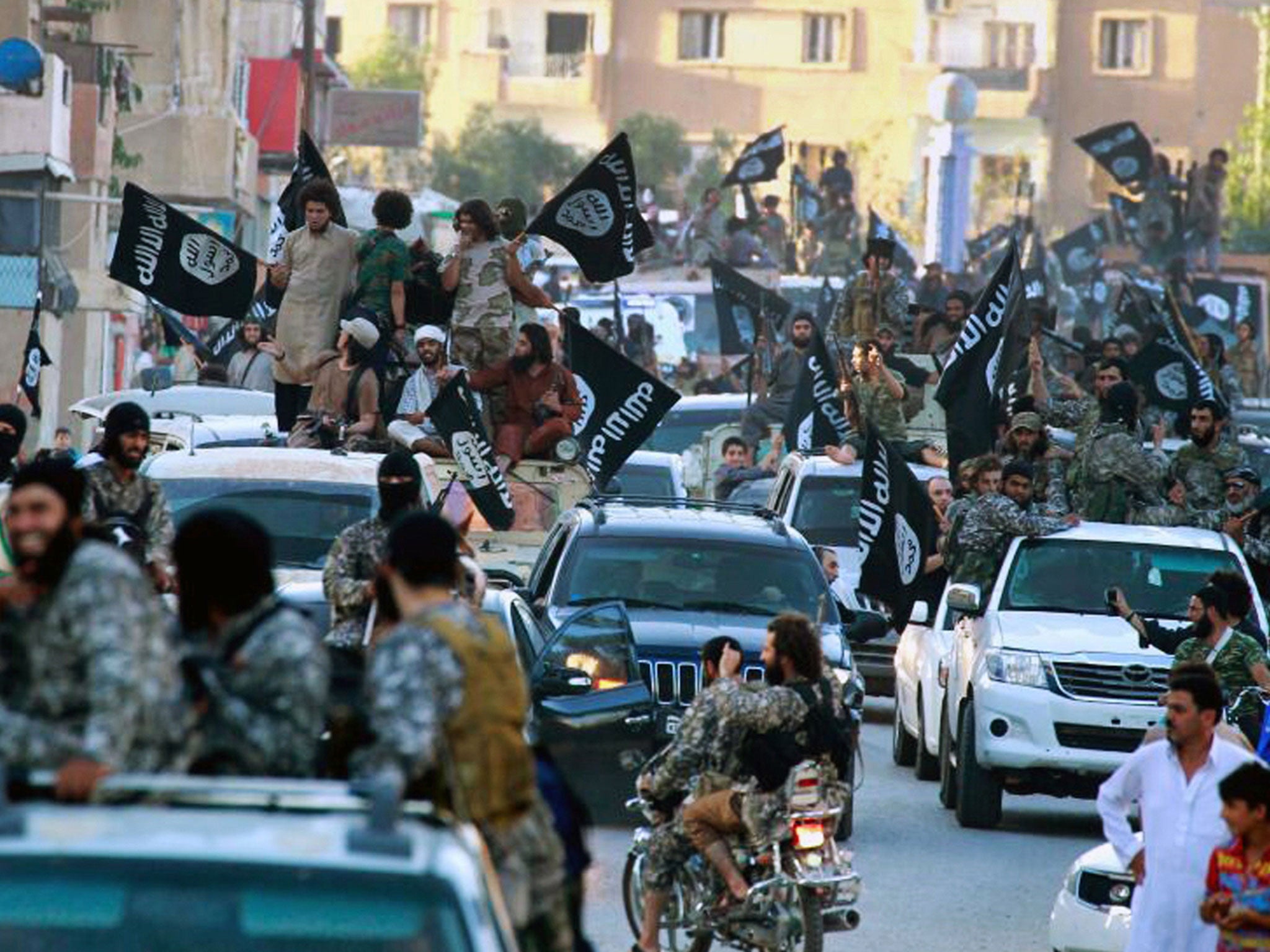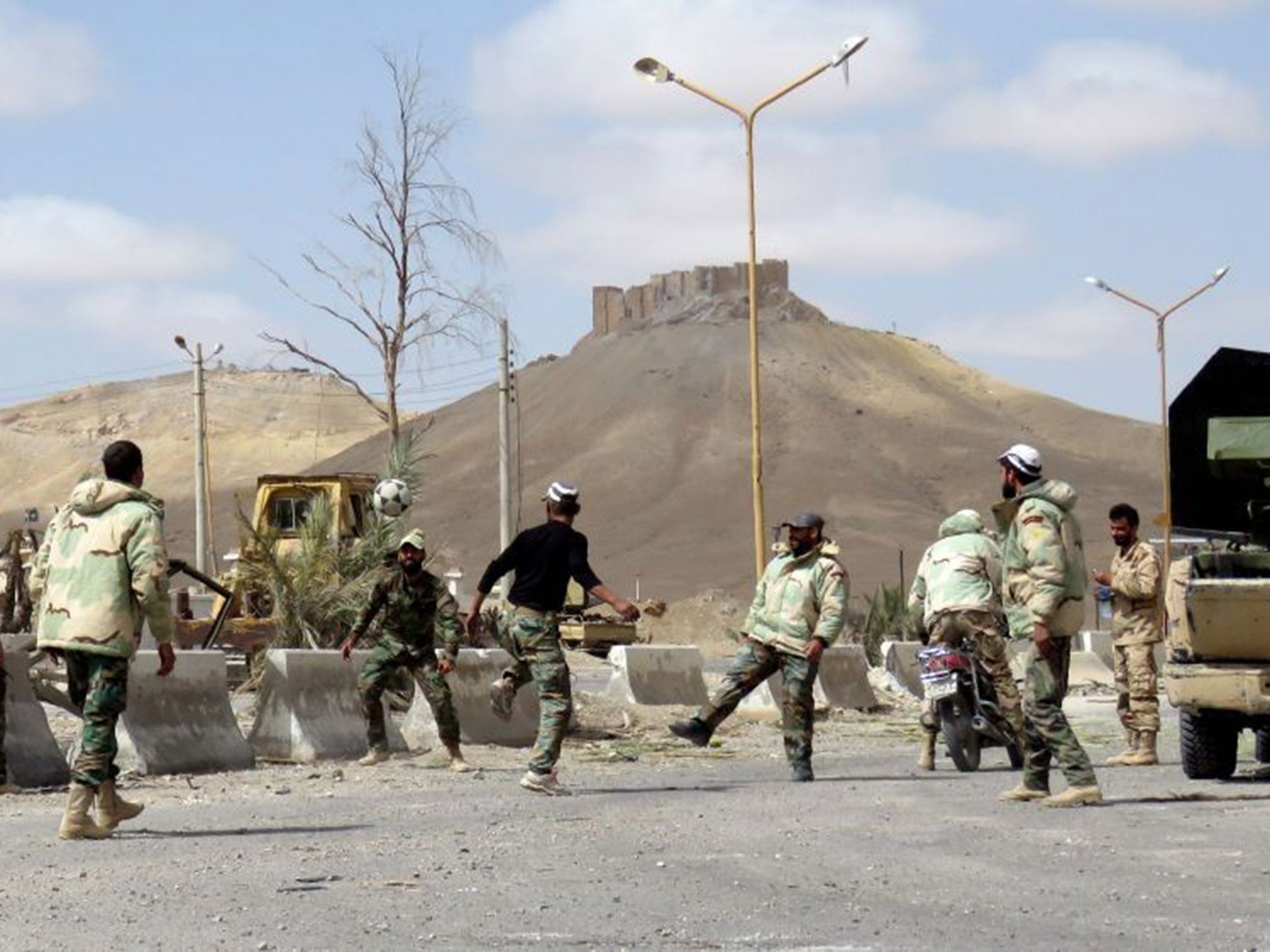Isis 'bans all Christians from leaving Raqqa' as military operations against group intensify in Syria
There was no explanation for the reported decree, which came after the group was driven out of Palmyra

Your support helps us to tell the story
From reproductive rights to climate change to Big Tech, The Independent is on the ground when the story is developing. Whether it's investigating the financials of Elon Musk's pro-Trump PAC or producing our latest documentary, 'The A Word', which shines a light on the American women fighting for reproductive rights, we know how important it is to parse out the facts from the messaging.
At such a critical moment in US history, we need reporters on the ground. Your donation allows us to keep sending journalists to speak to both sides of the story.
The Independent is trusted by Americans across the entire political spectrum. And unlike many other quality news outlets, we choose not to lock Americans out of our reporting and analysis with paywalls. We believe quality journalism should be available to everyone, paid for by those who can afford it.
Your support makes all the difference.Isis has reportedly forbidden all Christian and Armenian families from leaving its Syrian stronghold of Raqqa "under any circumstances" as military operations intensify.
The so-called Islamic State released a decree effectively keeping all members of the minorities under house arrest, Raqqa is Being Slaughtered Silently (RBSS) said.
"We don't know the real reason but we think Isis want them as human shields or hostages," a spokesperson added.
Activists with the group, which documents atrocities in the Syrian city, counted 43 Christian families remaining on Thursday.
One of its members writing under the alias Abu Mohammed said the ban was implemented without any explanation at Easter, which they have been unable to celebrate for the past three years under the terrorist group's rule.
He wrote that most of the trapped families are poor workers who could not afford to move elsewhere even when they had the chance.
"They suffer from the decisions and practices of the organisation (Isis), which has occupied their places of worship while forcing them to pay tribute, although they are deprived from practicing their rituals and religious practices," Mr Mohammed said, saying they are also subject to regular harassment.
Rami Abdulrahman, from the UK-based Syrian Observatory for Human Rights cast doubt on the new order, saying Raqqa's entire population was already confined to the city.
“Isis stopped everybody leaving Raqqa. Muslims, not only Christians,” he told Newsweek.
Most of Raqqa's former Christian and Armenian residents fled alongside other civilians and minorities when the city was seized from the Syrian regime by allied Islamist and opposition rebels in 2013.
Isis consolidated its hold the following year, sparking another wave of migration as its fighter executed Alawites and laid waste to Shia mosques and Christian and Armenian churches.
As with its other strongholds across Syria and Iraq, the group orders non-Sunni Muslims to convert, leave or remain on the condition they give up their property, pay special taxes (jizya) and sign a "dhimma" contact agreeing to abide by Sharia law.
Those who stay face increased scrutiny and surveillance, with accusations of public worship, attempting to convert others and other contraventions punishable by death.
This week's reported crackdown came amid a series of reported measures by Isis, which appears to be suffering the consequences of efforts by the US-led coalition to choke its revenue streams and infrastructure.
It has also been shaken by one of its biggest military defeats in Palmyra, which has been seized by regime forces and death of one of its top commanders.
RBSS said the group was making courses in taxi driving, medical care, engineering and other roles mandatory for all citizens in a suspected move to recruit more civilians.

Militants are also reportedly forcing more people to undergo courses in its ideology and jihad, while rationing electricity and temporarily cutting off water supplies as the humanitarian situation in the city deteriorates further.
Fighters' salaries were cut according to a decree issued earlier this year and the group is said to have become increasingly reliant on the US dollar after a failed attempt to start its own currency.
The US-led coalition said it conducted 27 strikes against Isis on Wednesday, mostly against tactical units and fighting positions in Iraq.
The group is not part of the current Syrian ceasfire, which does not apply to Jabhat al-Nusra, an al-Qaeda affiliate, and other internationally recognised terrorist groups.
Isis has been dealt a series of blows in recent weeks, which have seen the death of one of its top commanders and the seizure of Palmyra by Syrian forces backed by Russian air strikes.
The ancient city lies more than 100 miles to the south-west of Raqqa but Russian state media said its capture could mark the start of a campaign to drive miltiants out of their de-facto capital.
It sits along a key motorway that links the two cities with Deir Ezzor, which is also seeing fierce fighting to dislodge Isis.
Join our commenting forum
Join thought-provoking conversations, follow other Independent readers and see their replies
Comments